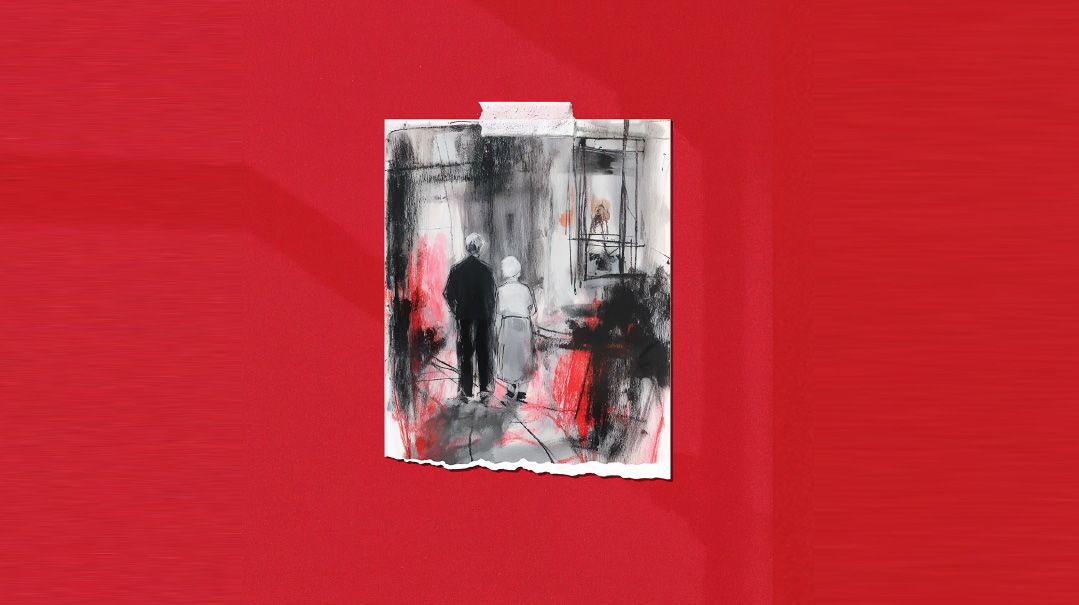Family First Inbox: Issue 950

“‘Al tadin es chavercha’ came to mind when reading Aliza Radin’s beautiful piece”

May You Exit the Border [Lifetakes / Issue 949]
I was very moved by Esther Rivkis’s article “At the Border,” about living between hope and despair when waiting for a shidduch. I myself lived “at the border” for over ten years and know very well the ups and downs she is describing.
I was particularly affected by her description of buying a baby outfit before it’s needed, as I did something similar. I’d been in shidduchim a few years when I found myself at the “Off 5th” Saks Fifth Avenue outlet store with a married friend, and we saw a rack of gorgeous European white-knit baby outfits. Upon closer inspection, I saw that these were boys’ outfits, meticulously tailored with tiny buttons and a white satin ribbon running through them. I told my friend that this would make a perfect bris outfit. “Buy it!” she exclaimed. But I was too embarrassed and thought maybe it was a little strange.
This didn’t stop me, however, from returning to the store the next day alone and looking at the outfits again. I decided to buy one, but then I saw that there were two different newborn sizes. I bought both.
Almost ten years after this, I did get married, baruch Hashem, and we had our first child, a girl, almost three years later. Eighteen months after that, our first son was born. Thankfully, I’d wrapped up the outfits very well in my own storage container, and they were in perfect condition when I took one of them out to use for the bris.
My husband and I were so grateful to Hashem that we combined these outfits with the bris pillow that my parents had generously bought us for the occasion and created a gemach. It makes me so happy that most of the baby boys born in our community since we moved here have worn one of these outfits for their bris. And the fact that I have one in each size has come in quite handy, as we’re able to accommodate newborns of all sizes.
Esther, may you have use for your saved-up housewares and baby outfits very soon, and may you soon exit the border area of hope and despair and move into the area of joy and happiness.
Lani Harrison
Scottsdale, AZ
Below the Surface [Lifetakes / Issue 948]
I was so touched by the article “What I Wish You Knew.”
“Al tadin es chavercha” came to mind when reading Aliza Radin’s beautiful piece. She talks about her life as a “special mom,” how her life experiences may seem the same as others… but there is so much pain and so many differences beneath the surface. Can we ever really know what pain your neighbor carries under her beautiful makeup?
Enter anyone’s house on a Friday night, and you could be stepping into a kaleidoscope of experiences, many of which we will never know:
While my seudah and yours both have crispy and delicious challos, I ache inside watching my skeletal daughter choke down a miniscule crumb.
While my seudah and yours both have crispy and delicious challos, my heart hammers with worry, knowing my bechor is at the casino with his wayward friends.
While my seudah and yours both have crispy and delicious challos, the tears rush, unbidden, seeing my late husband’s empty seat.
While my seudah and yours both have crispy and delicious challos, I avoid looking at my candles, because I light for every one of my children — even for the one no longer in this world.
Can we ever really know what someone else is experiencing? Hence the need to always validate, to never pry, and to never try to outdo someone else’s experience.
Your coworker comes to work saying “I’m so tired” — and your response is “Well, if you only knew how many times my baby woke me up last night.”
Ouch.
The right answer — the only answer — is to say “Oh, I’m so sorry. Can I make you a coffee?” Because while she may say “I’m so tired,” that is all she is sharing — and there could be miles underneath that statement that you don’t — and can’t — know. No one will walk into work and say: “I’m so tired because the rav helping with our shalom bayis struggles lives in a different time zone.” Or “I’m so tired because we were deciding if my son needed to be checked into the psych ward at midnight or if it could wait until the morning.”
We only know the surface — what we’re being told. So listen, validate, and be there. Because there could be so much more that you don’t know.
Name Withheld
Eat Humble Pie [Second Guessing / Issue 948]
I was so sad to read the Suite and Sour story about a woman whose husband is in a fight with his business partner, who is also her closest friend’s husband. I have several points to make about his machlokes.
First, one of the men should swallow what is sometimes known in English as “humble pie.” For the sake of shalom, one of them should swallow their pride and either accept that there will be a guest speaker who isn’t their preference or cancel him.
Second, their wives shouldn’t get involved in this petty argument. A husband and wife are separate people and the husband, if he knew what a healthy relationship entails, should not feel any resentment about his wife still being very close to his business partner’s wife. It’s codependency if a couple depends on or feeds off each other in an unhealthy way.
Wishing all of Klal Yisrael shalom,
Mrs. P.
(Originally featured in Family First, Issue 950)
Oops! We could not locate your form.

